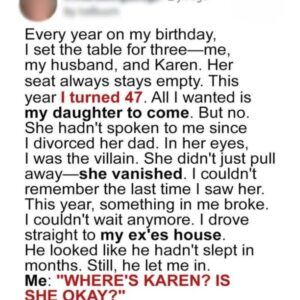The sky over Rivne’s Green Meadows Cemetery hung heavy with late-March clouds. A damp, mournful air clung to the mourners gathered to say goodbye to six-year-old Sofiya Kovalenko.
At the center stood a small white coffin—too delicate, too final. Scattered on top were wildflowers and dreams.
Whispers drifted through the crowd. Silent tears fell. But no one grieved more deeply than her father, Roman Kovalenko. Hollow-eyed and still, he stood frozen in silent sorrow.
Just as the ceremony was about to begin, an unexpected sound broke the stillness—paws pounding against the wet earth.
“Dakota?!” someone gasped.
From behind the trees, a German shepherd burst into view, ignoring her handler’s calls. She raced toward the coffin, leapt onto it, and stood firm—like a sentinel. Her eyes weren’t frantic but fiercely focused, protective.
“Get that dog away,” someone whispered, but no one moved. There was something in Dakota’s stance—watchful, alert—as if she heard something no one else could.
Yaroslav Moroz, a dog handler and longtime family friend, stepped forward cautiously. He had known Dakota all her life.
Smart, loyal, and inseparable from Sofiya. Roman hadn’t brought her to the funeral—it would’ve hurt too much. Yet here she was.
Then Dakota let out a low, trembling whimper.
Roman froze. It was the sound she made whenever she sensed something was wrong—before Sofiya’s seizures or fainting spells. Their bond had always been beyond explanation.
“She senses something…” Roman murmured, a flicker of hope breaking through.
Yaroslav looked to him. “Let’s open the coffin. Just for a moment.”
The crowd stilled. Some watched in disbelief. Others were unsure. Then an elderly doctor, Dr. Sydorchuk, stepped forward.
“If the dog is reacting this way, we must check.”
With Roman’s nod, they gently lifted the lid. Time seemed to stop.
Inside lay Sofiya—pale, still. But color had returned to her cheeks. And then—her chest rose, a faint, shallow breath.
Dakota slid down beside the coffin and lay quietly, calm now, as if to say: I found her.
“It’s a miracle,” the doctor whispered, his hands trembling. “She’s weak… but alive.”
Grief turned to joy. Some wept openly, others dropped to their knees. Sofiya had been in a coma—mistaken for dead. Dakota had known.
At the hospital, Dakota never left Sofiya’s side. On the third day, the little girl opened her eyes.
Her first words: “Dako… you found me?”
Everyone who heard cried.
Sofiya’s recovery was slow but steady—walking, laughing, truly living. And outside the city’s veterinary clinic now stands a statue: a bronze shepherd atop a marble base, eyes watching the horizon. The plaque reads:
“Dakota — The One Who Heard the Heart.”
The Kovalenko family’s life was never the same. Roman, once hollow with grief, began speaking about the fragile thread of life—and the power of attentiveness. And always, he spoke of Dakota.
Children drew pictures of Sofiya and her dog. Schools and shelters retold the story—of loyalty, instinct, and the miracle that defied logic.
Sofiya would often say, “I felt her. She called me back.”
The Day Everything Began Again
A year later, the city held a celebration for the anniversary of Sofiya’s awakening. Streets filled with laughter, charity events, and music. Sofiya laid fresh daisies at Dakota’s monument and whispered:





